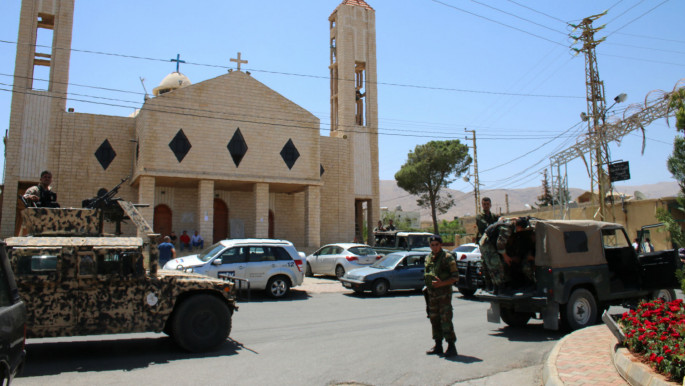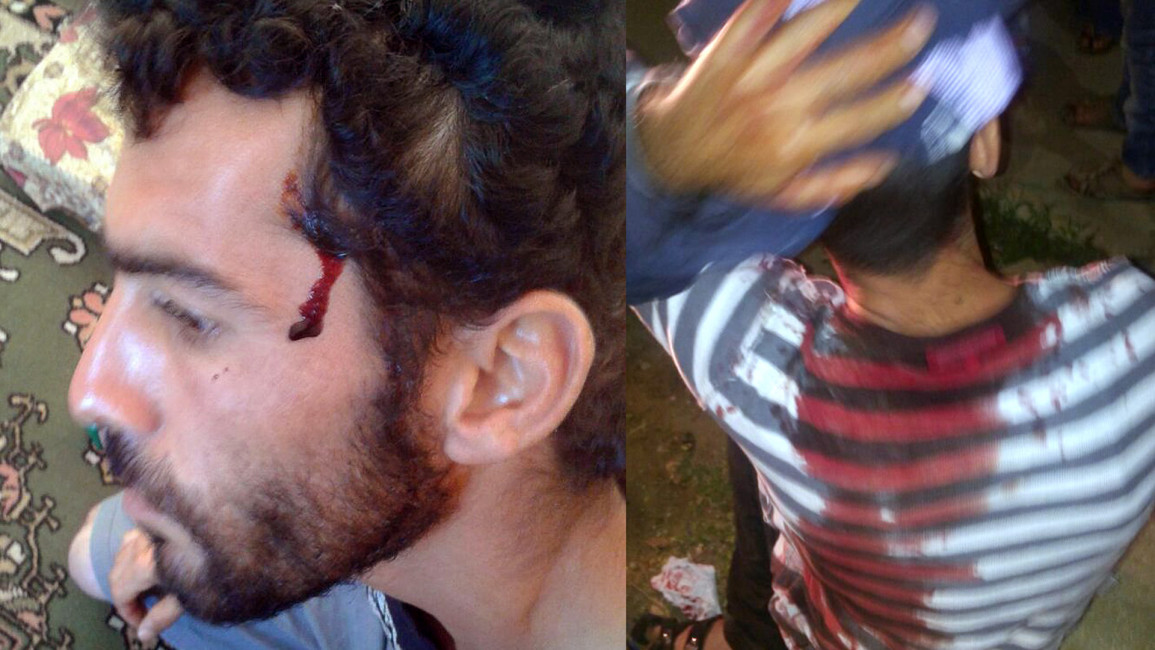Lebanese thugs assault Syrian refugees in 'revenge attack'
A Lebanese gang has assaulted a group of Syrian refugees in an apparent revenge attack in a central town, following double suicide attacks this week.
The mob attacked the refugees late on Tuesday in the Christian-majority town of Hrajel, leaving several badly injured, a day after a wave of suicide attacks hit the border village, al-Qaa.
"A group of Lebanese men in three cars arrived outside the home of ten Syrian refugee families and ordered the men to come out. The refugees didn't know who was calling out to them and whether it was the police, because there was a power outage," Nadim Houry, Human Rights Watch deputy director for Middle East and North Africa, told The New Arab.
"They went outside, thinking it was the local police collecting information on Syrian refugees, and then the Lebanese attacked them, hitting them on their heads with sharp objects. When the refugees fell down the attackers kicked them."
Half an hour later, the refugees called the police, who arrived on the scene and told the attackers to leave and ordered the Syrians back into their homes.
 |
|
| Residents of al-Qaa have taken to the streets with weapons [Getty] |
Houry added that most of the injured have not sought medical help because their residency permits have expired, and they are registered with the UN's refugee agency.
| In pictures: Residents in Lebanon take up arms |
The assault was likely a reprisal attack, said analysts, for this week's twin waves of suicide attacks that rocked the border town of al-Qaa, killing five and wounding 28.
Interior Minister Nuhad Mashnuq has said the suicide attackers came from inside Syria, not refugee settlements nearby.
Local police chief Tony Zughaib told The New Arab that the assault on the refugees took place following a car crash.
"Police intervened to prevent the situation from escalating. No one was injured, images of wounded people have come from a separate incident," Zughaib said.
Al-Qaa lies on a main road linking the Syrian town of al-Qusayr to Lebanon's eastern Bekaa valley.
Its 3,000 residents are predominantly Christian, but the Masharia al-Qaa district is home to Sunni Muslims and some 30,000 Syrian refugees in a makeshift camp on the edge of the village.
In the wake of the attacks, al-Qaa residents have taken to the streets with their own weapons in an apparent show of force.
The border area has been rocked by clashes, shelling, and suicide attacks since Syria's conflict erupted in March 2011.
Suicide blasts in the area have typically targeted checkpoints or military installations and rarely include more than one attacker.


![President Pezeshkian has denounced Israel's attacks on Lebanon [Getty]](/sites/default/files/styles/image_684x385/public/2173482924.jpeg?h=a5f2f23a&itok=q3evVtko)



 Follow the Middle East's top stories in English at The New Arab on Google News
Follow the Middle East's top stories in English at The New Arab on Google News


